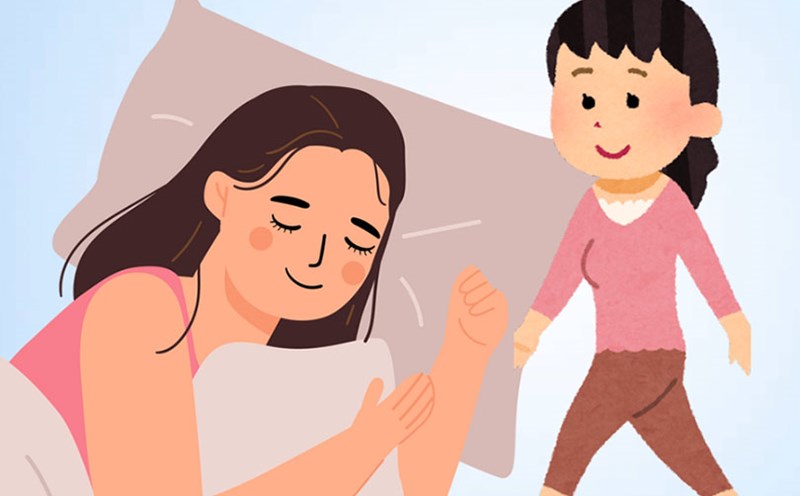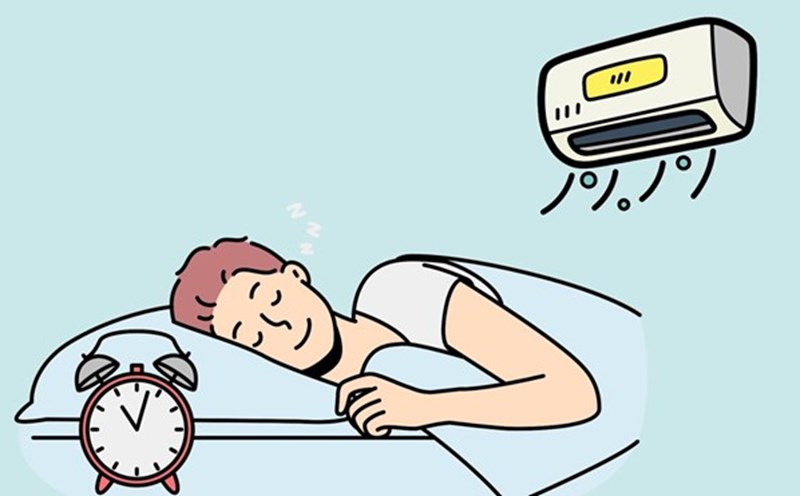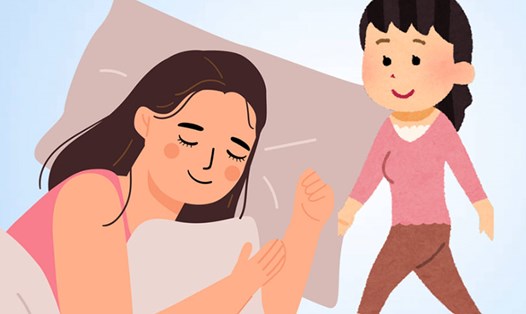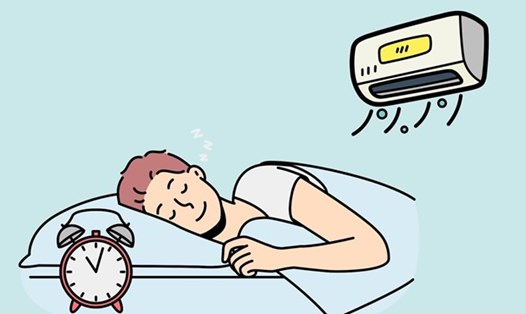Every morning, Mr. Khoa, an office worker in Hanoi, does not start his day by drinking coffee or opening his phone to check the news, but looks at his wrist. His first question was not sleep well? but What is the sleep factor?. With the smartwatch in hand, Mr. Khoa seems to know every detail of his sleep: How long he sleeps, how much his heart beats, how many times he grimaces at night. Feeling secure because you can grow sleep into a morning routine.
But that peace of mind also carries an invisible pressure. When the number on the application shows an ineffective sleep, Khoa can immediately feel tired even though he still gets enough sleep. He started eating, exercising, and even planning to work according to the "leducation" of data. Sleep, which was once considered the most natural thing, has now become a problem with a series of variables and charts.
The department is not the only case. Millions of people around the world, since the popularity of smart wearables, are monitoring their sleep every night in the hope of living healthier, more productive, and happier. However, amidst the wave of "harmwork to improve oneself", an uncomfortable paradox arises: When people try too much to sleep well, they make sleep more difficult to achieve than ever.
Smart wearables and the "self-care" fever
The wearables fever started with simple stop- counting watches, then quickly expanded into a huge industry. Apple Watch, Galaxy Watch or Garmin are no longer just fashion accessories, but are "private doctors" attached to the body. They measure heart rate, blood oxygen, activity level, and especially sleep quality - factors considered a new measure of a healthy life.
Since the COVID-19 pandemic, people's awareness of health has changed dramatically. Monitoring your body's indicators every day has become a popular habit. People not only want to know if they are exercising enough, eating properly or not, but also want to understand the minutes of rest. Colorful sleep charts, deep sleep scores or REM have become a familiar topic in morning conversations of many people.
Technology has opened up a huge market. Manufacturers constantly advertise that just by wearing a ring, bracelet or sensor strip under the mattress, you can grasp all the secrets of sleep. From the numbers, users are suggested to change their lifestyle: go to bed earlier, exercise in the evening, reduce caffeine, or even limit alcohol.
On the positive side, these devices help raise awareness of the importance of sleep. A study in Australia shows that up to 40% of people do not have quality sleep, of which 1/10 have chronic insomnia. Monitoring sleep makes many people start to pay more attention to their mental and physical health, thereby adjusting their sleep habits to get enough sleep.
However, as the line between self-care and self- comprehension becomes blurred, users gradually step into the land of paradoxes. Every time sleep score is low, a feeling of guilt or anxiety immediately appears, even though the body is actually still healthy. Many people wear watches all night just to see if they sleep well, and that action makes them more alert and have more difficulty sleeping.
Some experts call this phenomenon orthosomnia - sleep disorders due to being too obsessed with sleep. Just like when we try to relax, that effort makes the mind more stressed. While smart devices can measure heart rate, movement, or oxygen in the blood, they still can't touch the most important thing: The subjective feeling of rest.
Sleep, which is inherently a given up, is gradually becoming a test that people always try to achieve high scores. And in that journey to find perfection, many people are accidentally losing their own nature.
Paradox of measuring too much
The explosion of smart wearables not only reflects the advancement of technology but also shows the insecurity of modern people. As life becomes more urgent, being able to measure everything - from step counts, heart rate, to sleep - brings a sense of control. People want to believe that with data, they can understand themselves better, master their own health and happiness. But sleep is the exception.
Unlike exercising or dieting, sleep cannot be achieved by effort. The more we try to sleep well, the more likely we are to lose sleep. As Dr. Hannah Scott from Flinders Institute for Medical Research once commented: With sleep, the paradox is the more difficult it is, the more failed it is. When data becomes the center of all decisions, natural sleep - which is instinctive - is replaced by calculation and numbers.
Smart devices measure sleep based on physical signals such as heart rate, body movement, skin temperature or blood oxygen levels. This data is then processed by algorithms to assess the depth of sleep. However, what they cannot measure is brain wave activity - the most important factor in determining sleep quality. Therefore, the results from smartwatches or rings often only reflect the surface, not showing the entire biological reality inside.
Many people feel "bed well" but receive low scores from the device, or on the contrary, sleep is still highly appreciated. At that time, emotions and behavior begin to deviate. Users may become worried, check data more often, find ways to improve their scores, and that process makes their minds unable to relax. Sleep, which is a natural recovery, is turned into a performance test.
Another problem lies in the concept of good sleep which has no unified definition. Experts are still debating the quantity and quality: Is it more important to get enough sleep or get deep sleep? Some people may only sleep for 6 hours but are alert, while others who sleep for 9 hours still feel tired. Personal differences make data relatively recent, sometimes causing misunderstanding.
However, it is undeniable that wearable devices bring many benefits. They help users recognize habits that affect sleep - such as evening exercise to help sleep deeper, or alcohol that causes the heart to beat faster and sleep cramps. Some people even notice a slight increase in heart rate before feeling sick, allowing them to adjust early. In this aspect, technology plays a useful companion role, helping people listen to their bodies.
However, the line between listening and homesicking is very fragile. When people leave emotional decision data - happy when the score is high, sad when the score is low - they gradually lose the natural connection with the body. Experts recommend considering the device as a reference tool, not an absolute measure. Sleep is still a field of feelings, and sometimes, turning off the clock and saving data can be the best way to sleep better.
Sleep is not a competition, and the human body does not need to be optimized to each breath. What we need, perhaps, is to allow ourselves to rest truly - not for a score, not for a chart, but for the natural balance that technology cannot measure.











